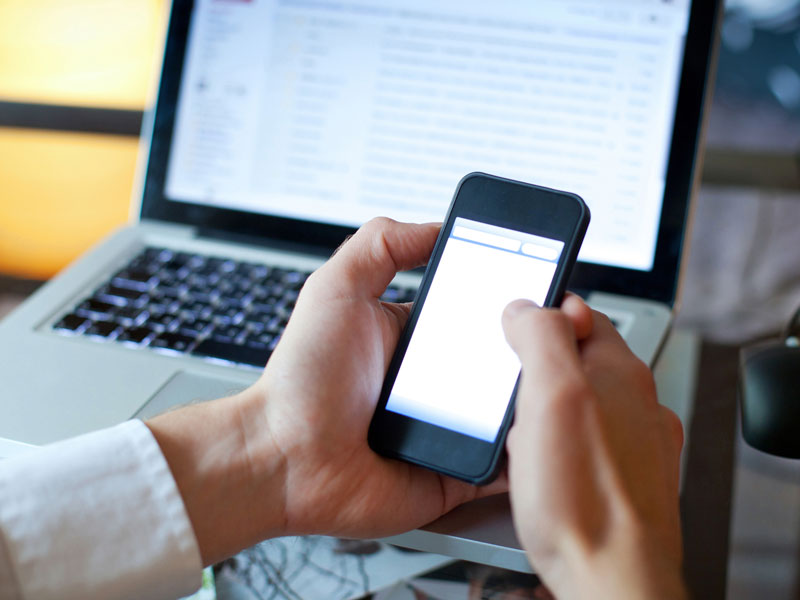You’re streaming that hit drama — and must find out which actress plays the sister. At halftime in the game, you hit send on one last email.
Sound familiar? It should. By some estimates, about 87% of people watching TV do so with another digital device in hand.
This trend is sometimes called second screening or media multitasking. It’s music to many marketers’ ears — after all, it means more ad views and mindless clicks on “buy.”
But such digital distraction isn’t always good for bodies and brains bathed in the screens’ glow.
The trouble with juggling
From the wired-up TVs on our walls to the smartwatches on our wrists, our brains feel the pull of demanding devices more than ever.
Our neural networks weren’t designed for such a constant barrage of information. Scientists are still working to understand the effects. Some studies show that heavy multitaskers:
- Forget things more often
- Have trouble paying attention
- Behave more impulsively
- Form inaccurate impressions of other people
- Risk social anxiety and depression
- Are more often obese
- Have less gray matter in areas of the brain linked to control of thoughts and emotions
The impact may be more significant on kids’ and teens’ developing brains.
Is there ever an upside? It’s possible. But researchers haven’t found clear evidence that media multitaskers even become better at doing more than one thing at once. “While we might think we are good at ‘multitasking,’ or doing more than one thing at a time, our brains are in fact not good at it,” said Sanford Health lead behavioral health integration administrator Dr. Jeffrey Leichter.
“When we think we are multitasking, our brains are actually shifting attention and mental resources back and forth and back and forth between two or more things. This shifting is cognitively expensive, it takes mental resources. As much as you can, work on one thing at a time. Get one thing done before moving on to the next,” he added.
Stay smart about screen time
Experts recommend that everyone should carefully think about how they engage with media. Need to cut back on your screen time? Here are some tips to get started:
- Try a digital detox. Spend some time — a week, if you can — phone-free. Notice how you feel. Then aim to build in more low-tech periods throughout your day.
- Shut off alerts. Disable notifications on social media and messaging apps. These constant pings may negatively affect your well-being.
- Make household rules. Declare some spaces and times — say, dinner and bedrooms — device-free. Engage in screen-free family actives, such as sports and reading. You’ll model healthy, balanced technology use for your children from an early age.
“The key is finding the ‘sweet spot’ for yourself where you are not under-stimulated from lack of cognitive challenge, but not pushed beyond the point of peak performance where our ability to multitask actually diminishes,” said Dr. Leichter.
“Using the smartphone analogy, as the batteries run down, some programs may limp along but others will simply not have the ability to function correctly. This is not dissimilar from us as people.
“You might be able to cook a hamburger for your kids, but balancing the checkbook or doing your taxes might not any longer be manageable until we free up some cognitive capacity.”
Learn more
- Smartphone impacts on teenagers: Positive and negative
- When media changes adolescent moods & anxiety
- Kids on social media must mind their mental health
…
Posted In Behavioral Health, Healthy Living
